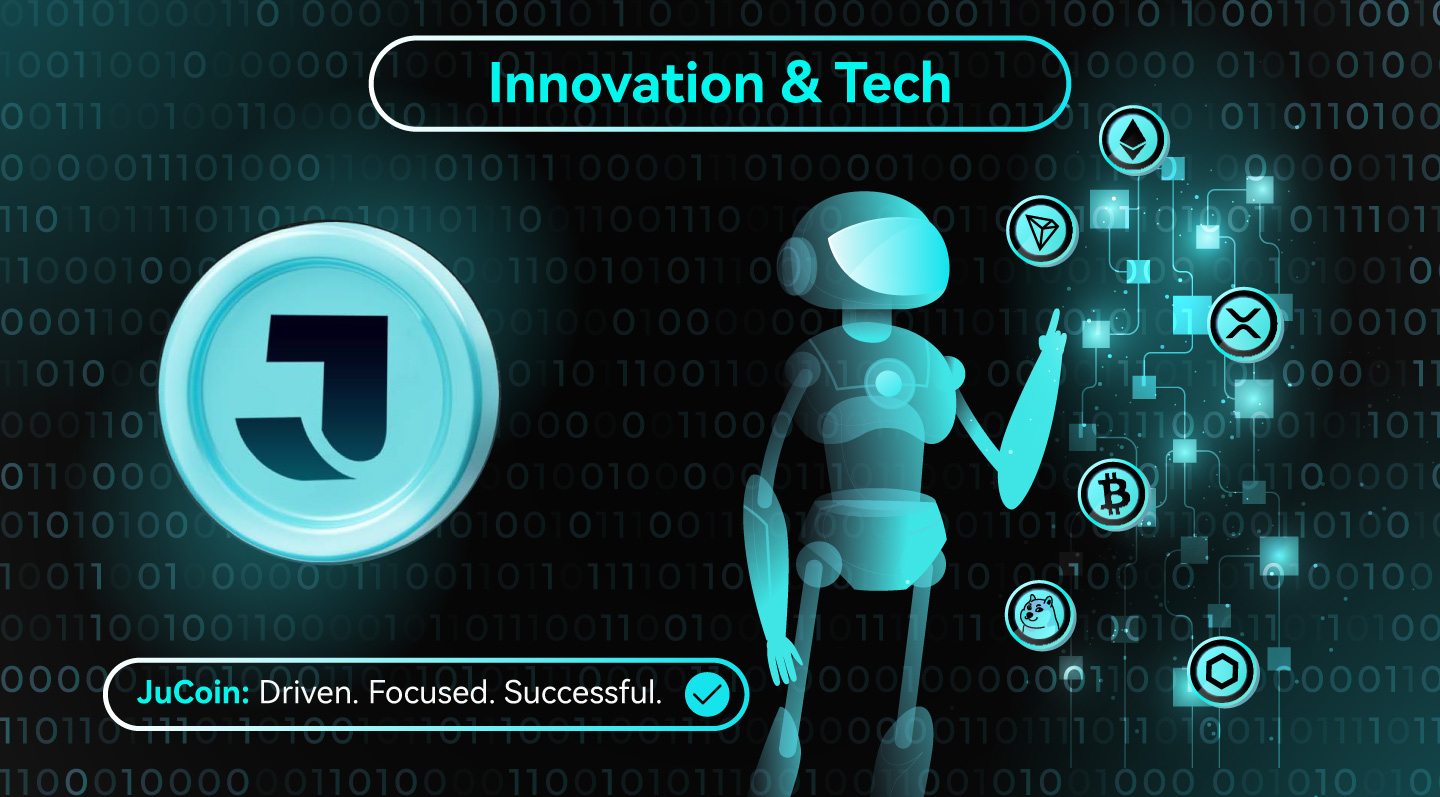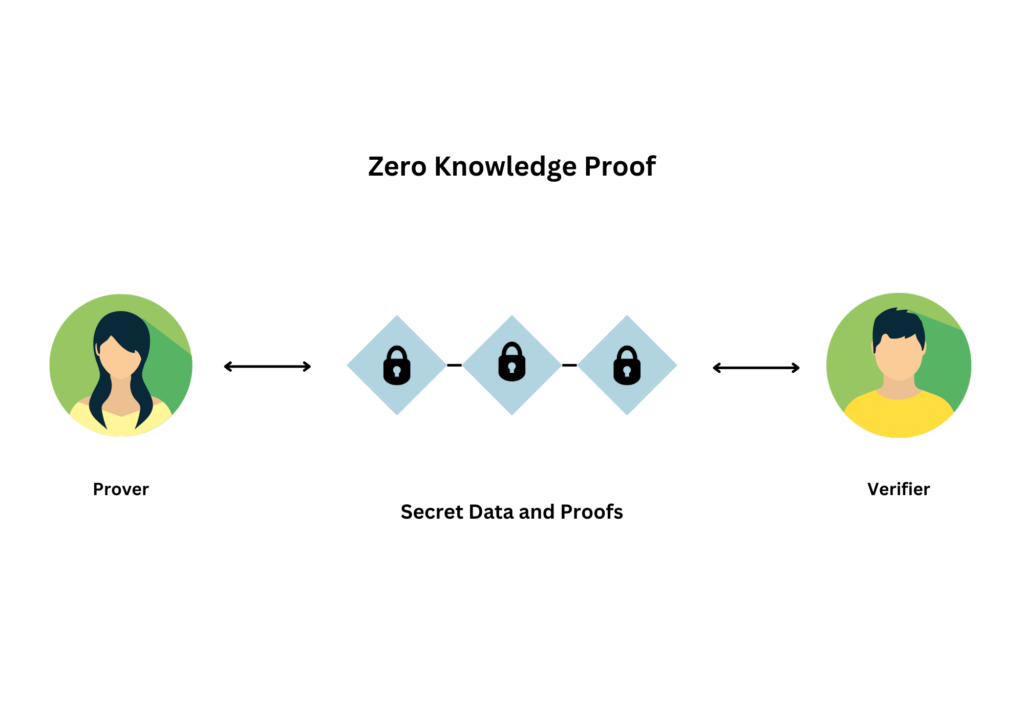
ZK proofs (Zero-Knowledge Proofs) have emerged from academic theory into a transformative technology driving the next generation of blockchain innovation. This Innovation and Tech breakthrough enables proving knowledge of information without revealing the data itself, creating unprecedented opportunities for privacy and scalability. With market projections reaching $10 billion by 2030 and over 87 billion proofs expected annually, ZK technology represents one of the most significant infrastructure developments in crypto history.
Summary: The ZK proving market is projected to grow from $97 million in 2025 to $1.34 billion by 2030, with Web3 applications requiring nearly 90 billion zero-knowledge proofs by decade’s end. Leading platforms like Polygon zkEVM, zkSync Era, and StarkNet are driving adoption across DeFi, gaming, and enterprise applications.
What Are Zero-Knowledge Proofs and Why Do They Matter?
Zero-knowledge proofs solve a fundamental problem in digital interactions: how to verify truth without revealing sensitive information. Imagine proving you’re over 18 without showing your birth date, or demonstrating you have sufficient funds without revealing your exact balance. This cryptographic innovation enables privacy-preserving verification across countless applications.
The technology originated in a 1985 academic paper by Goldwasser, Micali, and Rackoff, remaining theoretical for decades until Zcash launched shielded transactions with zk-SNARKs in 2016. Today, every major blockchain is racing to integrate ZK technology as the foundation for scalable, private applications.
ZK proofs enable three critical properties:
- Privacy: Prove knowledge without revealing underlying data
- Security: Cryptographically verify computation correctness
- Succinctness: Validate complex operations with minimal data

The Multi-Billion Dollar ZK Market Opportunity
Market Size Projections and Revenue Models
Multiple independent analyses converge on massive growth projections for the ZK proving market. Research from Aligned.co projects the market reaching $10.2 billion in revenue by 2030, driven by 87 billion zero-knowledge proofs completed annually at an average price of $0.12 per proof.
Alternative projections from Chorus One estimate more conservative growth, with the market reaching $1.34 billion by 2030. This analysis accounts for proving costs declining from $0.0063 per transaction in 2025 to $0.001 by 2030 as hardware efficiency improves and competition intensifies.
Revenue Drivers and Market Dynamics
The ZK proving economy operates through diverse revenue streams that mirror traditional infrastructure markets. Proof generation costs currently range from $0.0008 to $0.0104 per transaction across different platforms, with major cost variations based on computational complexity and hardware optimization.
Primary market segments include:
- ZK-Rollups: The dominant revenue driver with 2.46 billion projected transactions by 2025
- Cross-chain bridges: Enabling secure interoperability between blockchain networks
- Privacy applications: Supporting confidential transactions and identity verification
- Enterprise solutions: Powering supply chain verification and regulatory compliance
ZK-Rollups: Scaling Ethereum Without Compromise
The Blockchain Trilemma Solution
ZK-rollups represent the most promising solution to blockchain’s fundamental trilemma of security, decentralization, and scalability. Unlike optimistic rollups that assume transactions are valid unless challenged, ZK-rollups use mathematical proofs to instantly verify transaction correctness before submitting to Ethereum mainnet.
This approach delivers immediate finality and enables withdrawal times under one hour, compared to the seven-day challenge periods required by optimistic systems. As Ethereum co-founder Vitalik Buterin noted, achieving fast withdrawal times is “even more important than stage 2” for L2 development.
Leading ZK-Rollup Platforms and Performance
The ZK-rollup ecosystem has matured rapidly, with several platforms achieving significant traction and billions in total value locked (TVL). Current market leaders demonstrate the technology’s practical viability:
zkSync Era processed 276% more daily transactions quarter-over-quarter after major DeFi protocols migrated to the platform. The network prioritizes developer experience with native EVM compatibility and account abstraction features.
Polygon zkEVM achieved full bytecode-level compatibility with Ethereum while maintaining enterprise-grade security. TVL on the platform exceeded $312 million in Q1 2025, representing 240% year-over-year growth.
StarkNet distinguishes itself through high-performance architecture using custom Cairo programming language and STARK proofs, particularly popular in gaming and advanced DeFi applications.
Real-World Applications Driving ZK Adoption
Financial Privacy and DeFi Innovation
ZK technology enables unprecedented financial privacy while maintaining regulatory compliance. Projects like DeFiLlama track over 40 ZK-focused protocols with combined market capitalizations exceeding $21 billion, demonstrating significant institutional and retail adoption.
Privacy-focused cryptocurrencies like Zcash use zk-SNARKs to enable completely confidential transactions where users can selectively reveal transaction details. This approach provides stronger privacy guarantees than traditional mixing services while maintaining auditability for compliance purposes.
Identity and Authentication Systems
Google’s recent open-sourcing of ZK proof libraries represents a major institutional endorsement of the technology. The libraries enable age verification and identity confirmation without exposing personal data, supporting EU regulatory requirements for digital identity wallets.
Enterprise applications include:
- Age verification for online services without revealing birth dates
- Credential verification without exposing sensitive personal information
- Supply chain tracking with confidential business data protection
- Healthcare data sharing while preserving patient privacy
Gaming and NFT Platforms
Immutable X leverages ZK technology to support millions of NFT mints and trades with zero gas fees, even during network congestion. The platform demonstrates how ZK-rollups can enable mainstream adoption by eliminating traditional blockchain user experience barriers.
Investment Landscape and Market Risks
Venture Capital and Institutional Interest
The ZK ecosystem has attracted substantial venture capital investment, with prominent firms like a16z Crypto and Paradigm funding leading projects. This institutional support provides the capital necessary for continued research and development in computationally intensive ZK technologies.
However, investors should consider several key risks when evaluating ZK investments:
Technical Challenges: ZK proof generation requires significant computational resources and specialized expertise. Implementation complexity can create barriers to adoption and increase development costs.
Market Competition: The rapid proliferation of ZK solutions creates intense competition among platforms. Success depends on achieving sustainable user adoption and demonstrating clear value propositions over alternatives.
Regulatory Uncertainty: Privacy-enhancing technologies face potential regulatory scrutiny, particularly in jurisdictions with strict financial surveillance requirements.
Technology Trends and Future Developments
Hardware Acceleration and Mobile Proving
Recent breakthroughs in ZK proof generation include StarkWare’s S-two prover, which enables proof generation on laptops and mobile devices. This development democratizes access to ZK technology and enables new applications like real-time privacy in mobile wallets.
Hardware acceleration through specialized chips and GPUs continues reducing proof generation costs. Industry leaders project proving costs declining by 10% annually through 2030 as competition and technological improvements drive efficiency gains.
Standards and Interoperability
The ZKProof Standards initiative works to establish industry-wide protocols for interoperability and security. Standardization efforts focus on enabling different ZK systems to work together while maintaining security guarantees across platforms.
FAQ: Zero-Knowledge Proofs Investment Guide
What makes ZK proofs valuable for blockchain applications? ZK proofs enable privacy-preserving verification and dramatic scalability improvements without compromising security, addressing two of blockchain’s biggest limitations.
How do ZK-rollups compare to optimistic rollups? ZK-rollups provide instant finality and faster withdrawals through mathematical proofs, while optimistic rollups rely on dispute mechanisms with seven-day challenge periods.
What are the main investment risks in ZK projects? Key risks include technical implementation complexity, intense market competition, regulatory uncertainty around privacy technologies, and dependence on continued technological advancement.
Which sectors benefit most from ZK technology? DeFi protocols, gaming platforms, identity verification systems, and enterprise applications requiring privacy-preserving data sharing show the strongest adoption trends.
How do ZK proving markets work? Decentralized marketplaces connect computational power providers with applications needing proof generation, creating new revenue opportunities for infrastructure operators.
What drives ZK proof pricing? Proof costs depend on computational complexity, hardware efficiency, market competition, and the specific ZK protocol used for generation.
Are ZK technologies ready for mainstream adoption? Recent breakthroughs in mobile proving and EVM compatibility suggest ZK technology is transitioning from experimental to production-ready infrastructure.
How can investors evaluate ZK projects? Focus on total value locked, transaction volume growth, developer adoption, technical differentiation, and team expertise in cryptographic implementation.
Key Takeaways
Zero-knowledge proofs represent a paradigm shift in blockchain technology, enabling privacy and scalability without security trade-offs. The market opportunity appears substantial, with projections reaching $10 billion by 2030 driven by enterprise adoption and DeFi growth. While technical challenges remain, breakthrough developments in mobile proving and institutional support from companies like Google signal mainstream readiness. Investors should carefully evaluate individual projects based on adoption metrics, technical differentiation, and team execution capabilities while considering the substantial long-term potential of this transformative technology.
The ZK proving market emergence parallels the early days of cloud computing, where specialized infrastructure providers captured significant value by enabling new application categories. As blockchain technology matures, zero-knowledge proofs may prove essential for achieving the privacy and scalability necessary for global adoption.






